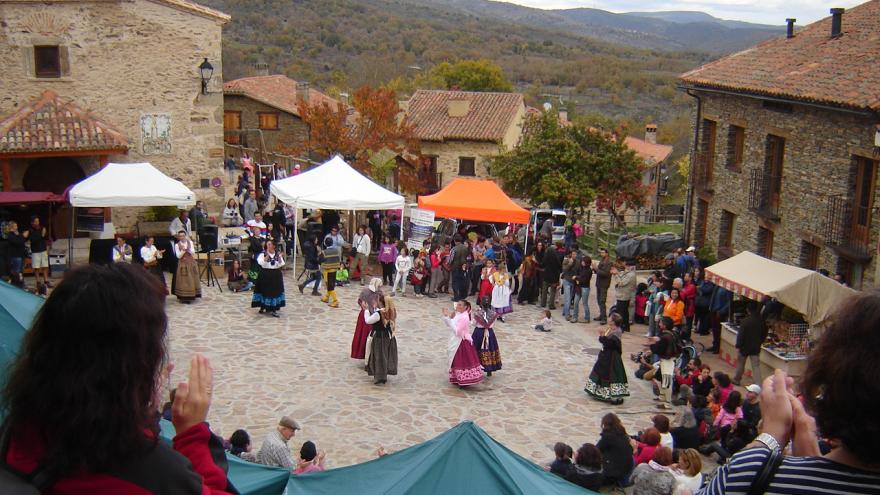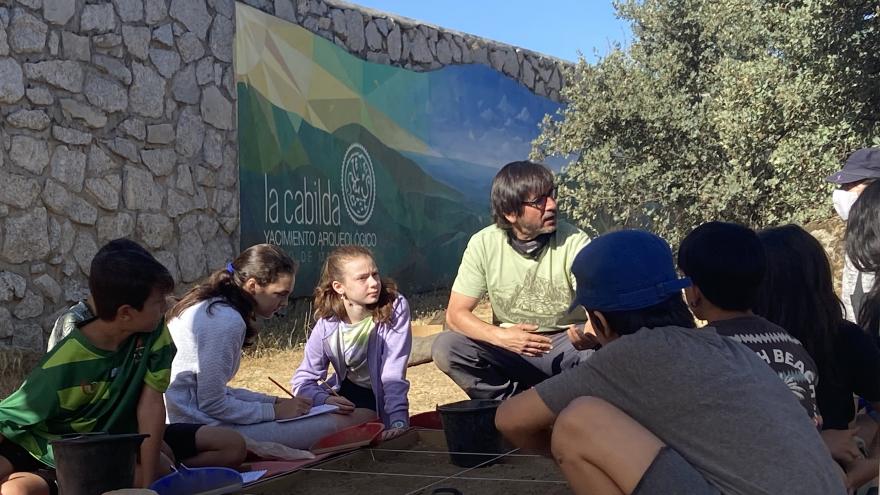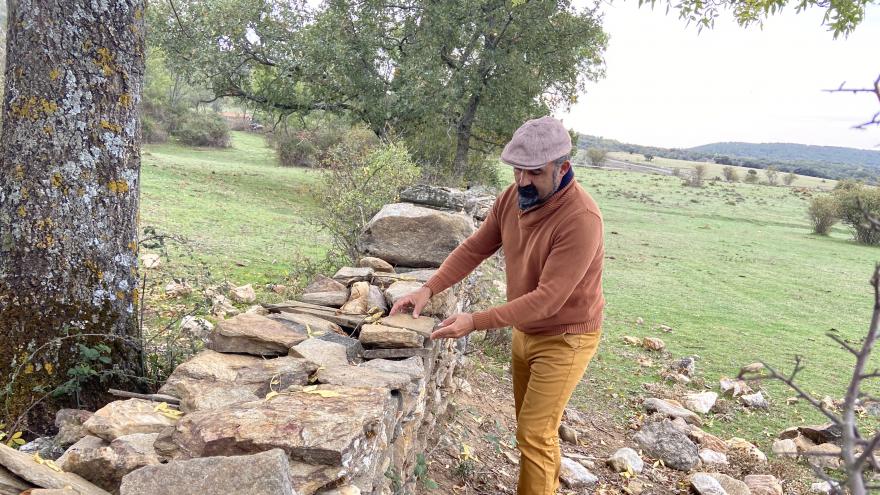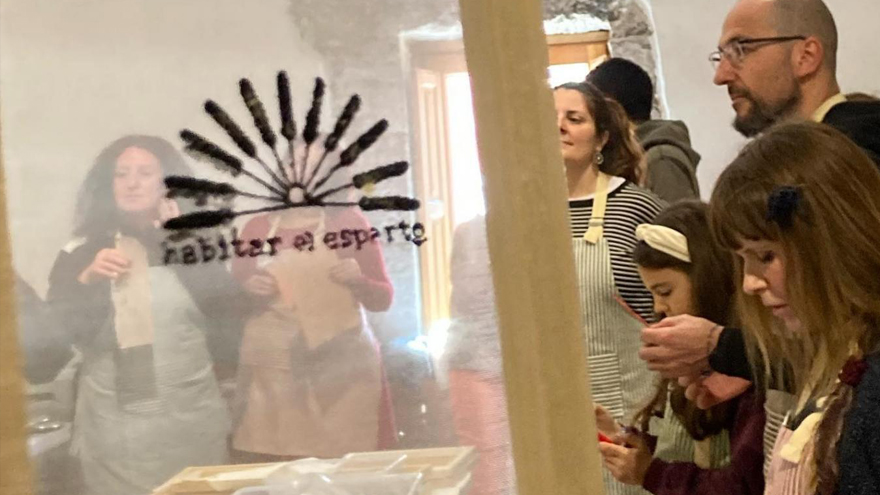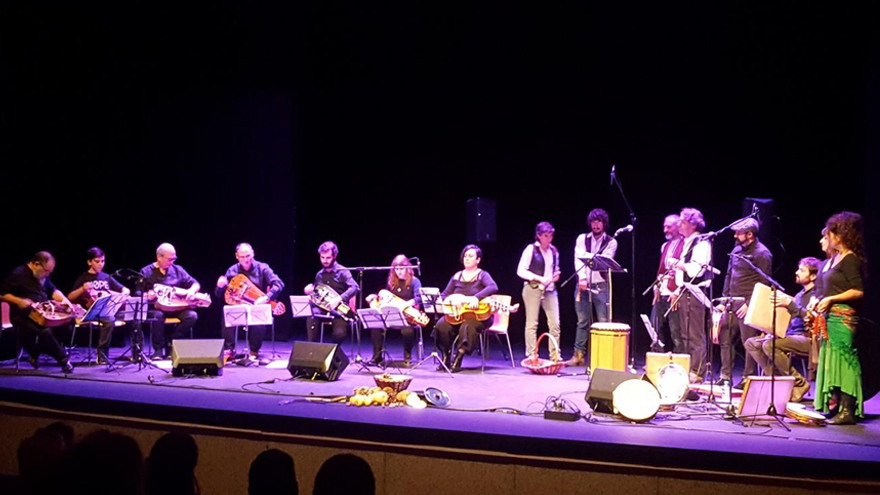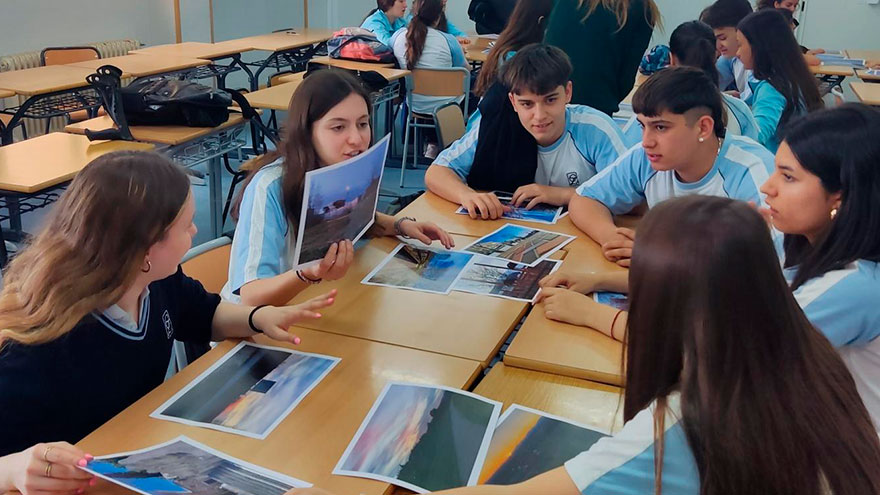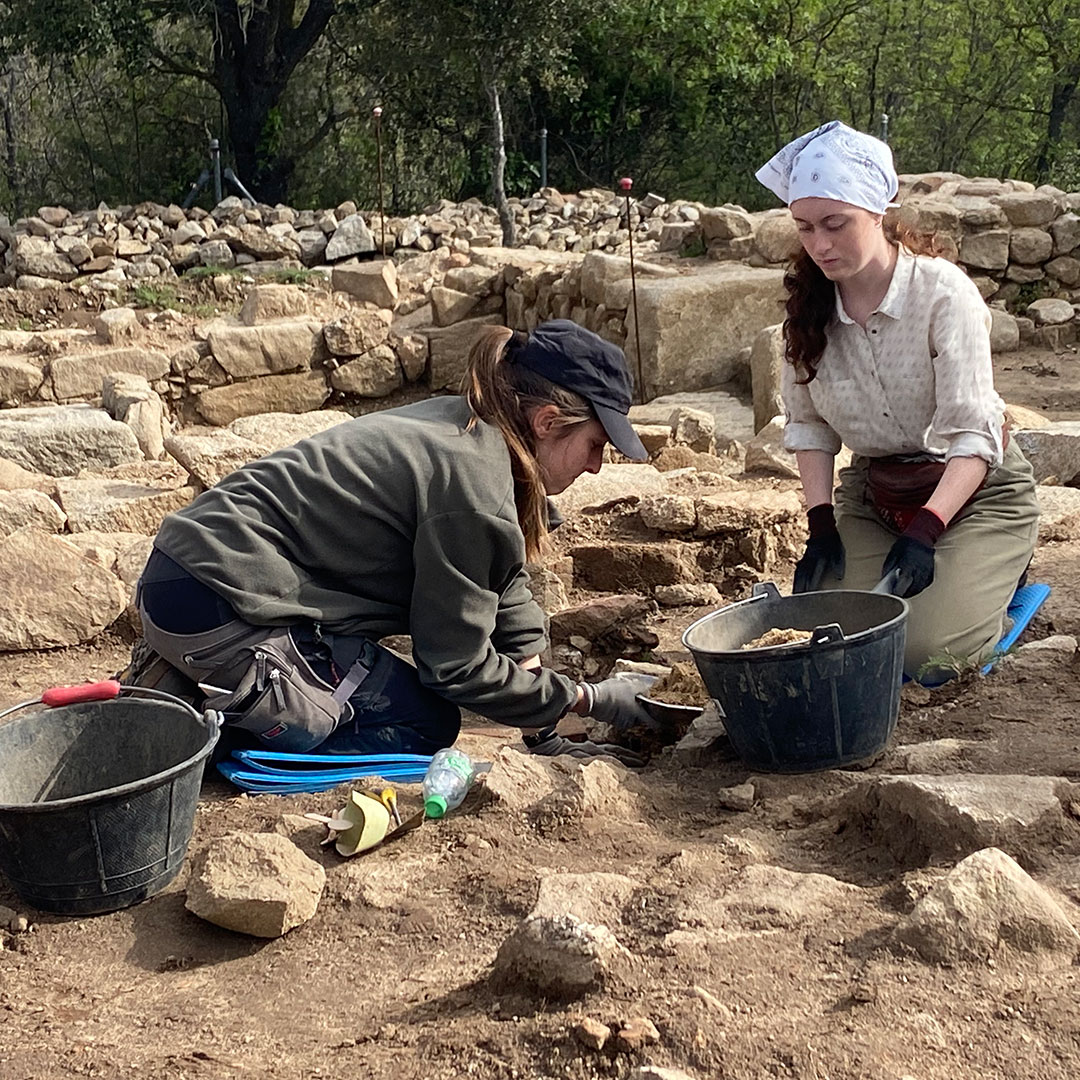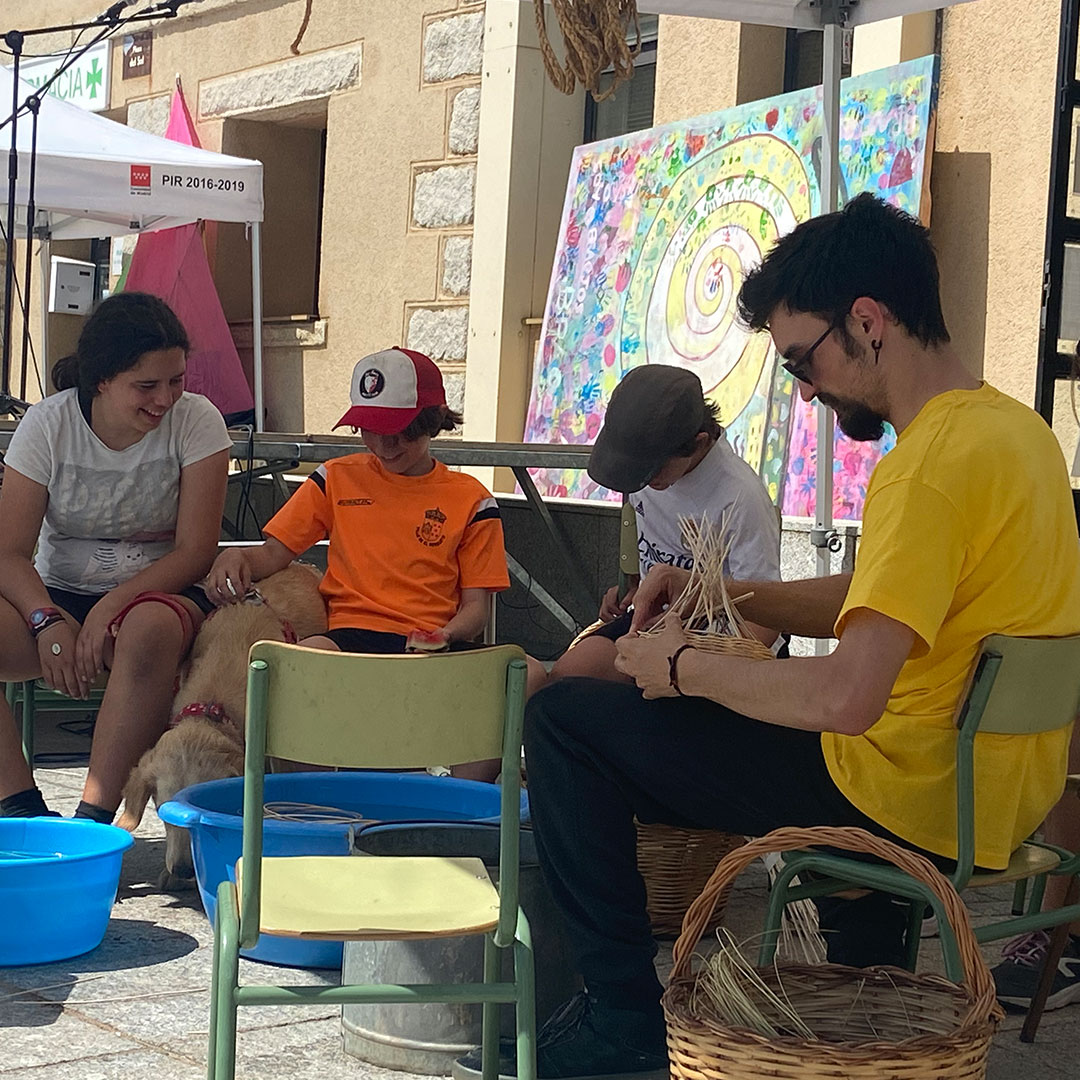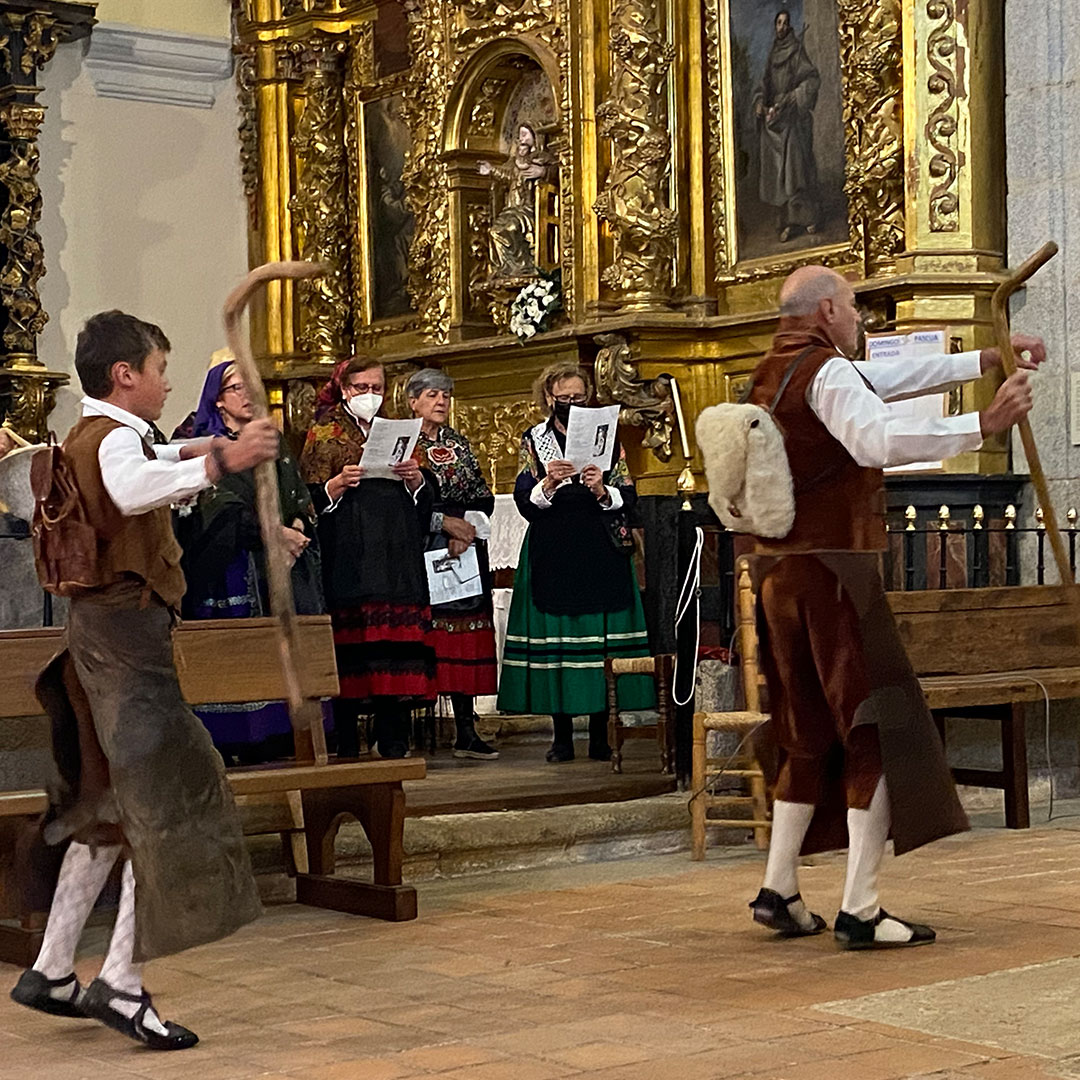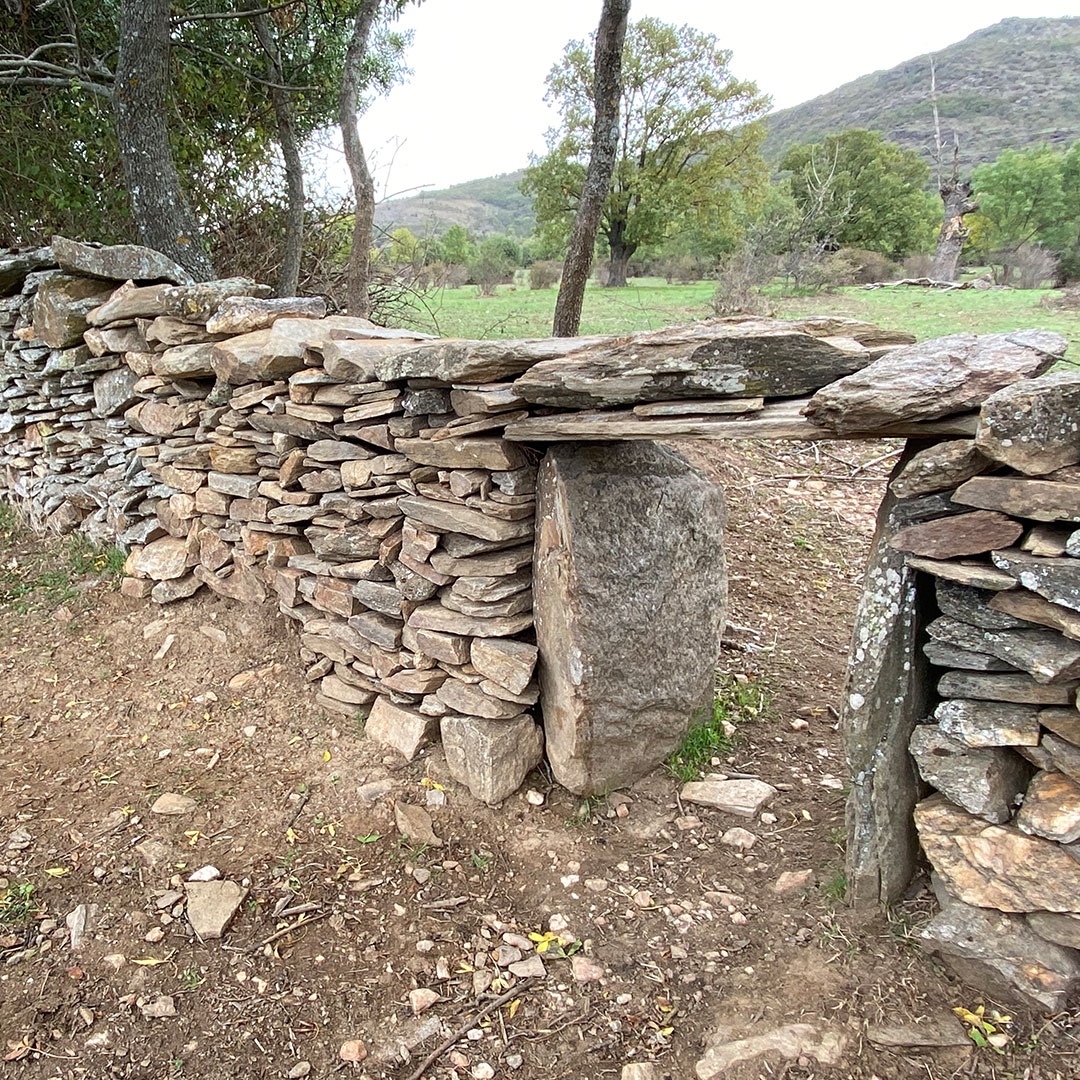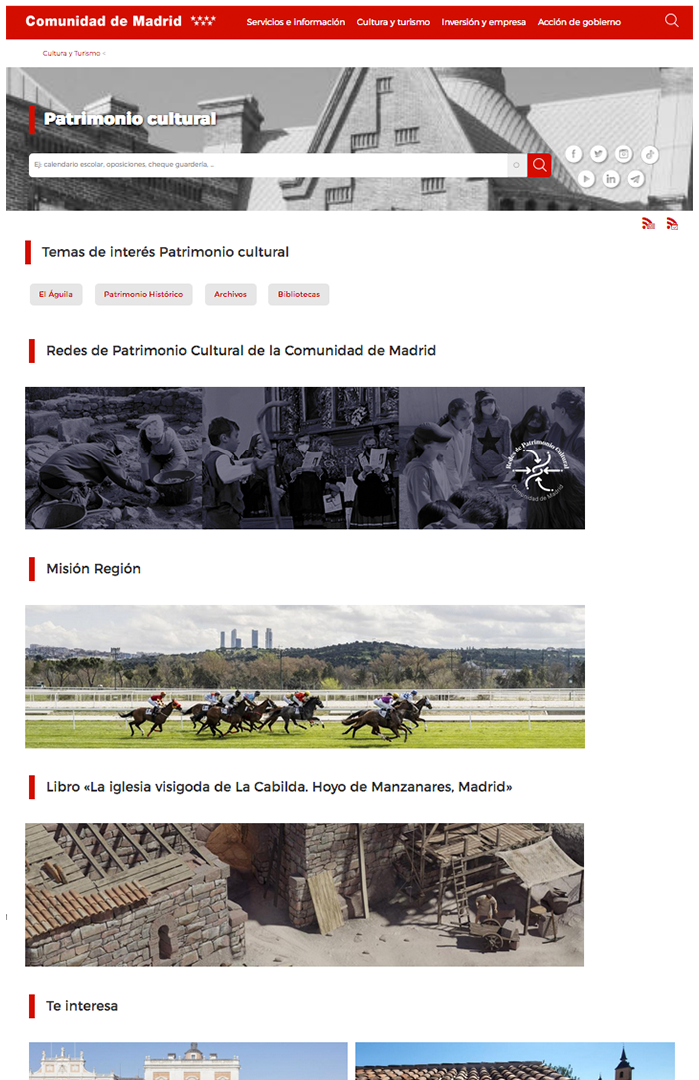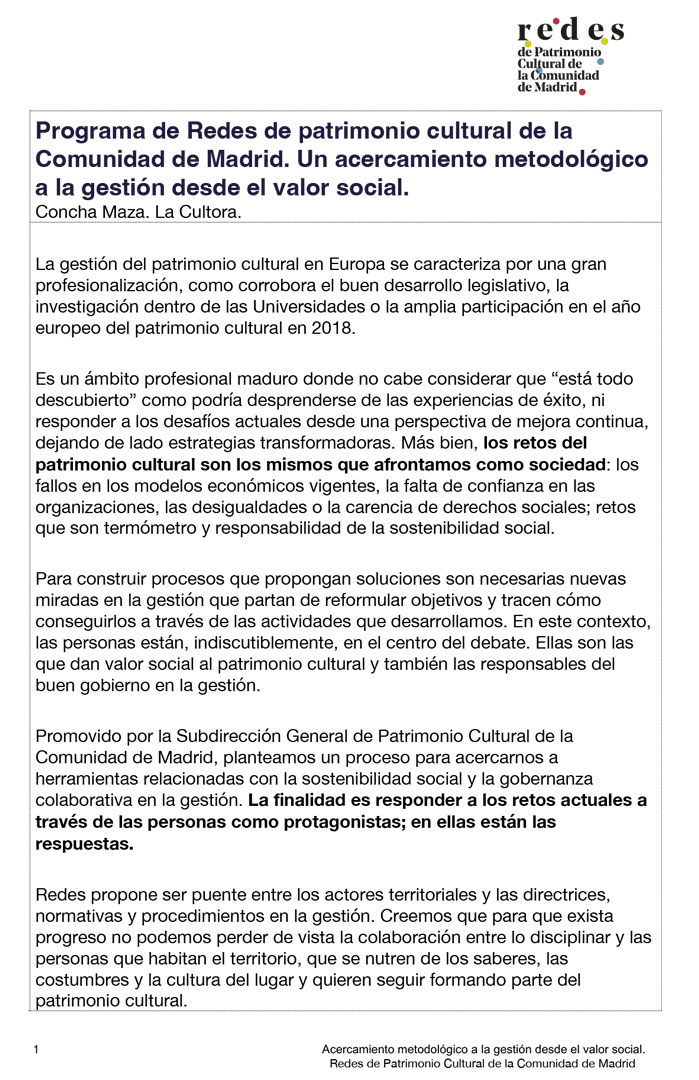Designing a methodology and participatory programme
Mapping good practices and connecting territorial actors
The management of cultural heritage faces same challenges that we face as a society: the failures in the current economic models, the lack of trust in organisations, inequalities or the lack of social rights?
Promoted by the Department of Cultural Heritage of Madrid Regional Government, we propose a process to approach tools related to social sustainability and open governance. The aim is to respond to current challenges through people as key players; the answers depend on them.
Redes intends to be a bridge between territorial actors and management and procedures. To ensure progress, collaboration between the disciplines and the people who live in the territory, who are enriched by the knowledge, customs and culture of the place, is essential.
Redes de Patrimonio Cultural de la Comunidad de Madrid
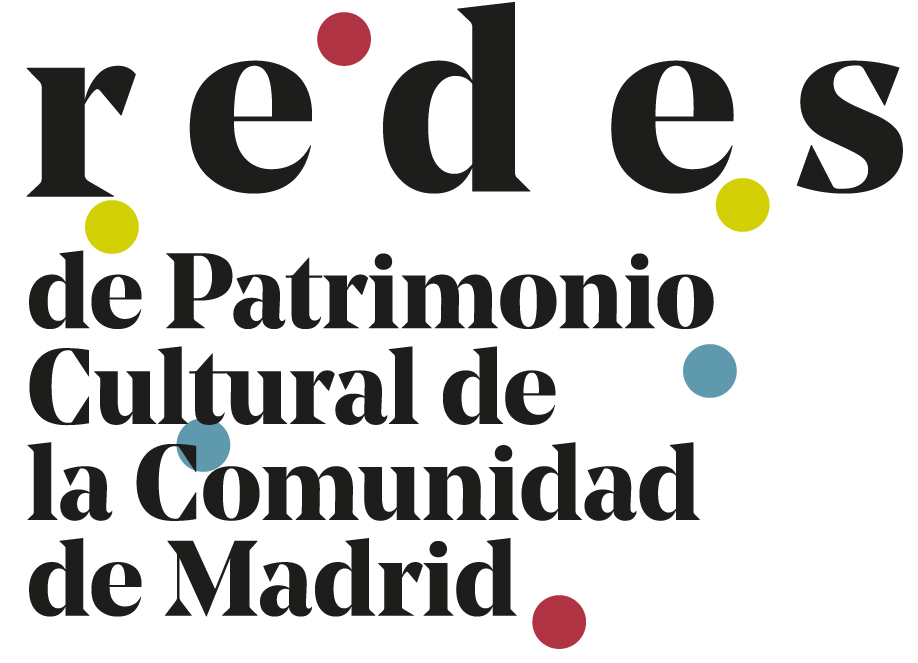
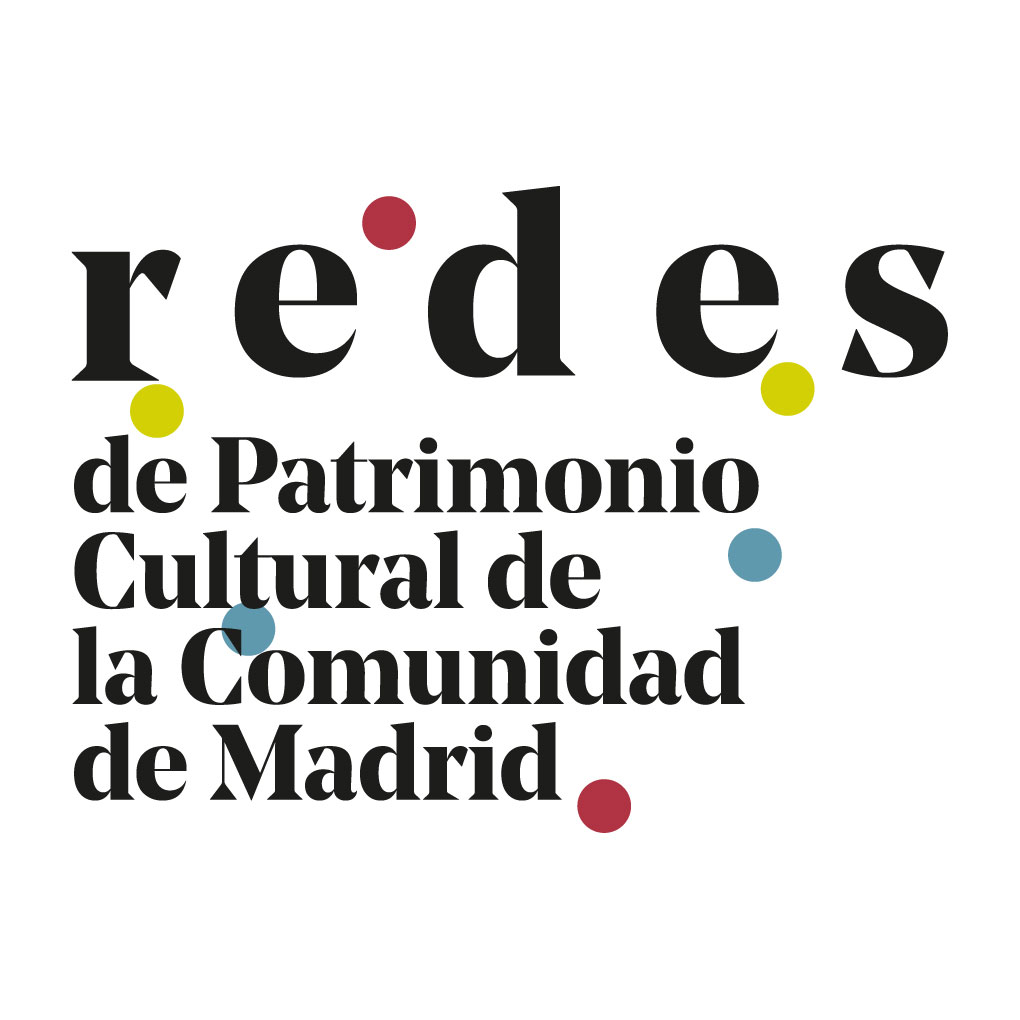
Designing a methodology and participatory programme
Mapping good practices and connecting territorial actors
The management of cultural heritage faces same challenges that we face as a society: the failures in the current economic models, the lack of trust in organisations, inequalities or the lack of social rights?
Promoted by the Department of Cultural Heritage of Madrid Regional Government, we propose a process to approach tools related to social sustainability and open governance. The aim is to respond to current challenges through people as key players; the answers depend on them.
Redes intends to be a bridge between territorial actors and management and procedures. To ensure progress, collaboration between the disciplines and the people who live in the territory, who are enriched by the knowledge, customs and culture of the place, is essential.
Redes de Patrimonio Cultural de la Comunidad de Madrid
Strategy + transfer
Shapes the roots of the programme.
It arises from analysing references and trends from different scales and contexts.
Aims to create a living space to build the vision and mission, as well as useful methodologies and tools.
It is open to growth and updating and creates the guiding documents with consensus.
It is the enabling environment for Redes.
It is a space for knowledge through connections, experience and collaboration.
Seeks to create conversations, build synergies and transfer knowledge in diverse non-linear directions to lever resources and results.
It develops through conversations and experiences and builds an active space for soft skills.
In seeking to involve people and give value to the process that builds what Networks are, we have developed a methodology for gathering information from two perspectives:one, strategic, with a macro approach through key documents; and the other, applied, from a micro vision, through the transfer of community knowledge from the territory.
Mapping good practices
Community archaeology
El Rebollar site. El Boalo.
Traditional Festivals
A Heritage Community in the Sierra Norte.
Local, social and educational development
La Cabilda. Hoyo de Manzanares
Social, educational and local development
Castillo Viejo site. Manzanares El Real.
Recovery of the Dry Stone
Biosphere Reserve of Sierra del Rincón
Inhabit in the esparto
In Villarejo de Salvanés.
Traditional music and instruments
Enhancement of music and instruments of oral tradition in rural areas.
My Landscape
Exploring the cultural landscape through photography
From conversations with territorial actors, we understand that Redes is also a programme that must emerge from local environments with the mission of connecting experiences and neighbours, fostering knowledge transfer and making projects with multidisciplinary management visible as cases of good practice.
The approach through the selection of good practices makes sense because the answers to each situation are not common and the procedures cannot be applied in the same way. It is a way of understanding that solutions must be adapted and flexible to specific circumstances, context and objectives.
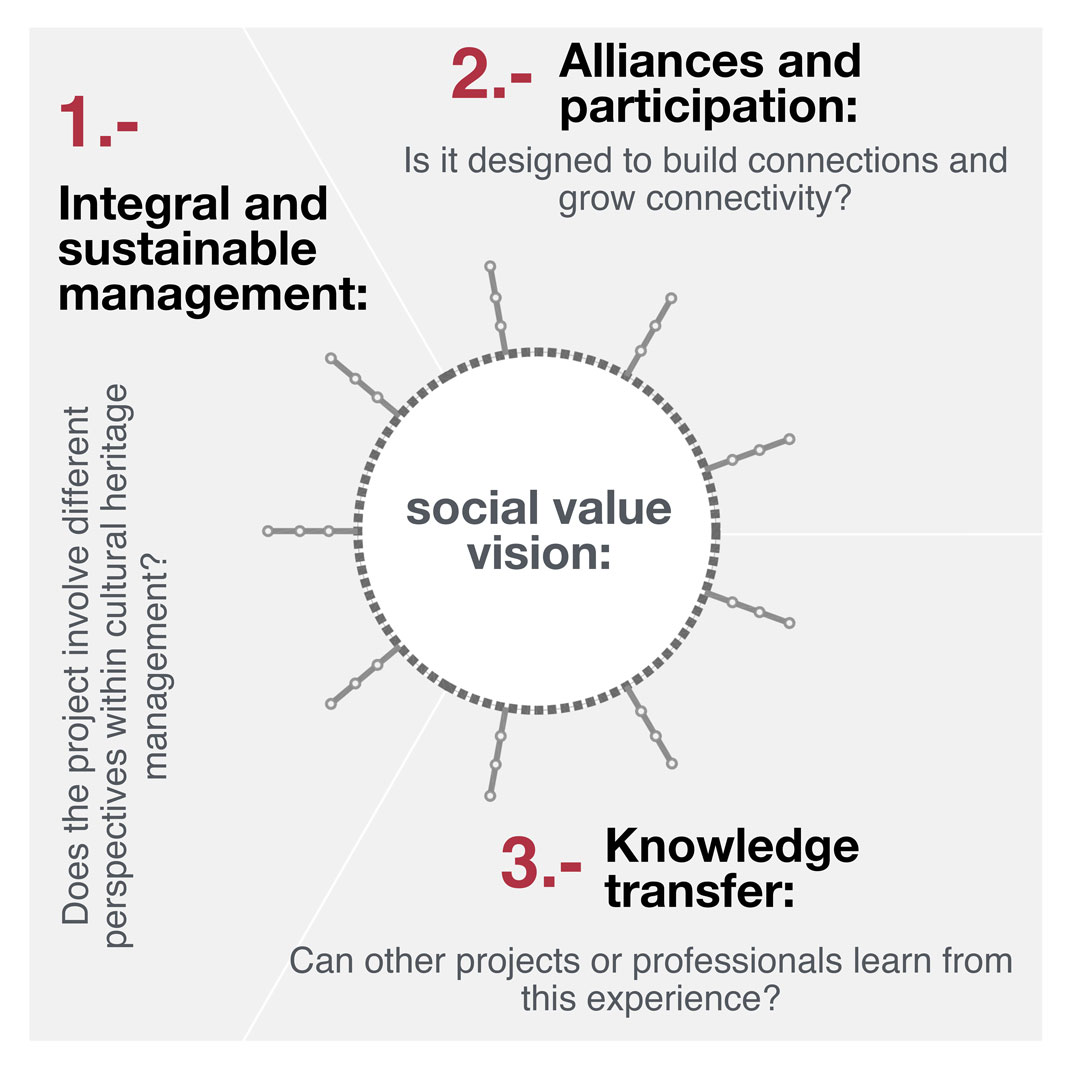
Redes programme builds a space of possibility through mediation between disciplinary and territorial practices. It is a new perspective, a tool both for the public institution that promotes it, Department of Cultural Heritage of Madrid Regional Government, and for the rest of the participants.
Giving voice to key players
If you want to know more or participate
Participate from the web Patrimonio Cultural de la Comunidad de Madrid
Ir a la web
Methodology Redes
Download PDF
Promoted by the Department of Cultural Heritage of Madrid Regional Government
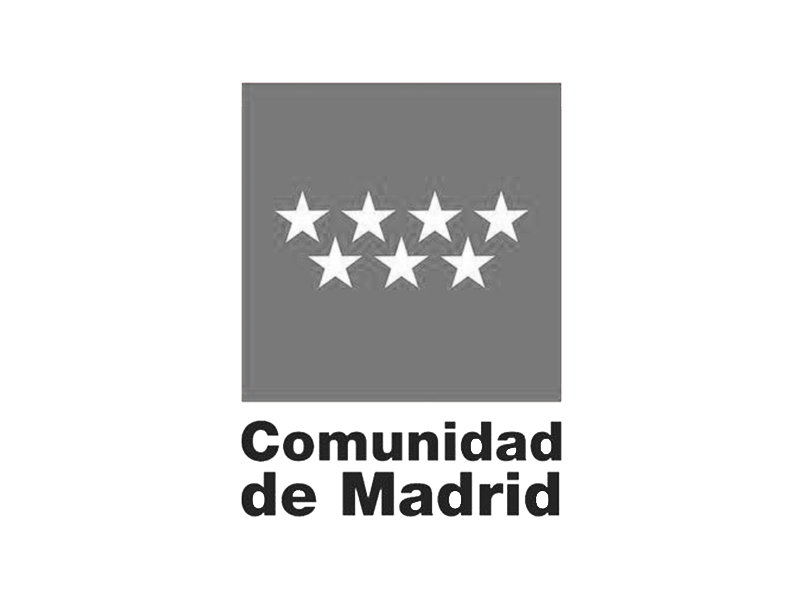
Methodology design and mapping of good practices



